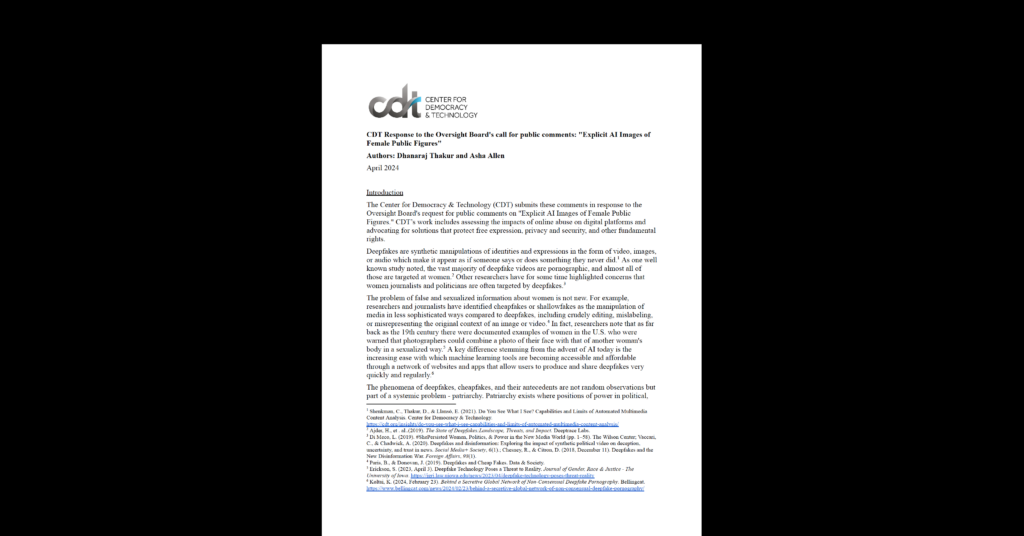Free Expression, Open Internet
Court Finds Domain Name Seizure Ineffective, Postpones First Amendment Arguments
Late last week, Rojadirecta, the Spanish website that had its domain names seized in February, lost its petition for the immediate return of its property (the domain names rojadirecta.com and rojadirecta.org). In a narrow but nonetheless disappointing opinion, the judge found that the seizure had not caused the owner of the site the “substantial hardship” necessary to warrant immediate return of the property under US seizure law (specifically 18 USC 983 § (f)(1)(C)), in large part because the site remains accessible at new domains. CDT had joined the Electronic Frontier Foundation and Public Knowledge on an amicus brief in the case, arguing that the domains should be returned because the seizure amounted to an unconstitutional prior restraint on online speech.
EFF’s blog post on the ruling points out some holes in the court’s brief analysis: In short, under First-Amendment jurisprudence, the fact that the site remains accessible by other means (in this case at new domains) should have no bearing on the analysis of the seizure’s impact on speech rights. And from the perspective of the First Amendment, there’s a strong argument that any impairment of speech rights should be considered a substantial hardship. Indeed this is the rationale behind the doctrine that places prior restraints among the actions most heavily disfavored under the First Amendment.
At the same time, the judge’s analysis of the practical consequences of the seizures echoes what we’ve said about the domain-seizures all along: Seizure is a woefully ineffective way to “shut down” a website. In the court’s words, Rojadirecta’s owner has “transferred its website to alternative domains which are beyond the jurisdiction of the [United States] . . . but United States residents can access them without restriction. . . . Rojadirecta has a large internet presence and can simply distribute information about the seizure and its new domain names to its customers.” It’s ironic that the most straightforward policy argument against using domain-name seizures as a copyright enforcement tactic is central here to the court’s reasoning for letting this seizure stand, at least temporarily.
The reality is that ineffectiveness as an enforcement tactic will cut against the seizure in a full First Amendment analysis. To pass muster, a government action that restrains speech must be narrowly tailored to achieve a compelling government interest, and more effective than a less restrictive alternative for achieving that interest. In addition to the deficiencies highlighted above and more fully by EFF, domain-seizures will fail this test. As this court recognizes, seizing a domain name does not prevent access to the site in question, and there are certainly alternatives to protecting intellectual property that are both more effective and less burdensome on protected speech. Examples include cooperating with foreign law enforcement to get infringing content actually taken down and working with financial intermediaries to remove the criminal site’s means of support.
This was an early step in the legal fight over this seizure, and thankfully Rojadirecta’s owner will have another chance to make these arguments. In addition to ruling on the motion to return the domains, the court also set a briefing schedule on a forthcoming motion to dismiss the government’s final forfeiture complaint. And even in dismissing the First Amendment arguments, the opinion specifically invites re-making those arguments at that stage. We look forward to a fuller analysis, in which the First Amendment arguments should carry vastly more weight than they did last week.


